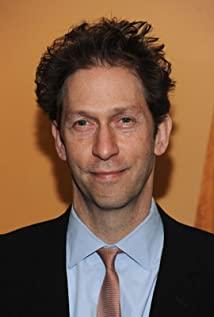----------------------- Camus This is a movie about the pain of life, the inseparable self and the real world are intertwined, let us in Those who want to save, want to seek salvation, feel extremely weak, we feel failure, we feel that we are in everything with limitations, but we are trying to pursue infinite beauty. Maybe everything in the world is just a spring dream of masturbation. If we surrender ourselves completely to ourselves, or to reality, the ending may be the same, endless nothingness, endless failure, and endless absurdity. Facing the pain of reality, the endless pressure that seems to appear out of thin air, what will we do? Closed? Depressed? indulgence? Still indifferent. Perhaps as Camus said: He is far from insensitive, he has a persistent and deep passion, a passion for absolute and truth. Faced with all of this, we may have no choice but to live without hesitation and live as much as possible, and the meaning of it cannot be explored. Happiness and absurdity are two sons on the same land. All seemingly absurd deaths seem to have their own happiness. Suicide may really be a permanent and peaceful way to stay away from those temporary troubles. And all happiness may also arise from absurd discoveries. The Chinese translation of the film is detached, in fact, the author prefers to understand it as a fragmentation. Mankind has endured endless suffering, and one of the most unstoppable is that mankind is always trying to separate self from reality. It seems that only in this way can we feel at ease. However, the facts are often not the case. Self and reality are often inseparable, because our so-called self is the same as all the self in the film, not the emptied self. This self is connected to the past, others, and everything. We feel that it is close at hand, but very far away, we keep searching, but before we find it, we have already discovered that it has been steadily collapsing. As for existence, we often understand it to be objective, but sometimes when the fragile mind confirms this problem, it is often based on others. What I see in the eyes of others is the real existence in the objective world. Through others, I can Feel that you are there. Through other people's words, hugs, and emotions, I feel that I have established a weak and tenacious connection with the world. And when all this left me, I was actually dead. Perhaps everyone’s self is a castle. In the maze of this castle, we failed to have the patience and energy to figure out the internal structure of all of them, so we resolutely walked out of the city gate, and we began to look for other castles, and Their exterior walls have been repaired to make them look new, but we don’t actually have the ability to walk through the inner labyrinth of any castle, whether it’s ours or everyone else’s. In the final analysis, everything is in vain. The paradox of the world is that while we are in endless interconnections, we believe that each of us is completely independent and free. So we continue to try to influence others, and at the same time, we continue to build our own dikes to protect some inexplicable things. The two may be irreconcilable. The film uses the profession of teacher as a narrative, perhaps because of this, while teaching students' ideas, while teaching students to keep their own ideas. This seems to be a logical paradox. If I accept the idea of keeping my independent thinking taught by others, in fact, my independent thinking no longer exists. Therefore, what greets everything is bound to die and collapse and nothingness. People living in this contradiction may be just like this teacher. He keeps helping others while keeping a delicate distance. He keeps influencing others, but always excludes others from himself. He is a liberal on the surface, but he is trying to save some sorrow and extinction, and put the world into order. He is so contradictory, just like all of us. The film begins with Camus' words and tells a story that applies to all first-person pronouns in the third person. It is giving people a sense of confusion that I am so far away from myself and my existence is so real. At the end of the film, a warm hug bathed in the sun gave us unlimited hope, and it shattered all of them in the ruins of decadence. Perhaps, we who have a limited life can only do this, facing the absurd reality, putting in immense enthusiasm, and becoming an absurd hero without considering the meaning, just like the Sisyphus described by Camus. In the meaningless world that is trying to be personally borne, you are not here, and I am not here. You see my existence, but I am just a shell. And where are you and me, you don't know, I don't know either. I only know that there is always a shackle around me, which makes people constantly want to break through, but it often ends in vain. The charm of the film is twofold, it is a mixture of the common cognition of the public and the daydream of extreme individualism in literature. Therefore, a good film is not only because it has good colors, shots, and outstanding performances by actors, but also that it brings us endless intellectual thinking, although this kind of thinking is often extremely painful. Full text end
View more about Detachment reviews











